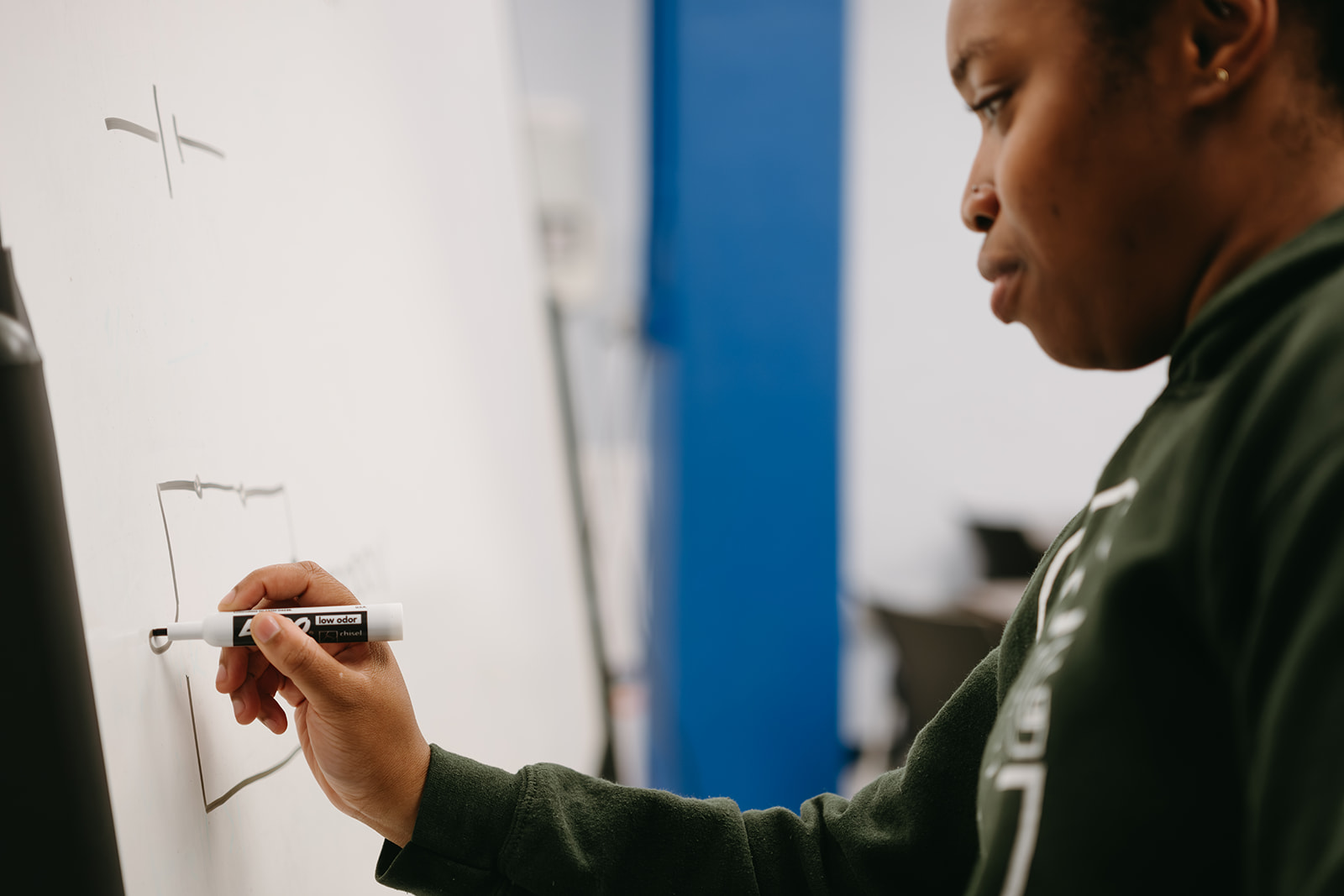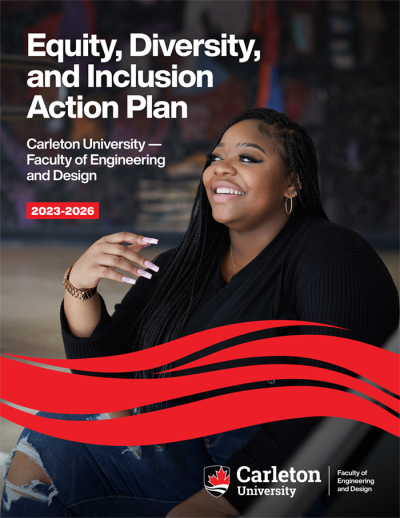Opening Doors and Shaping Futures for Black Youth at Carleton University
Ty Burke
Melanie Mathieu
In order to seize an opportunity, you need to get one in the first place. Not all young people have the same access to jobs and internships, and members of equity denied groups face challenges gaining the work experience that is essential to future success. But Carleton’s ELITE program is helping Black youth get a foot in the door.
Professional Development for Black Youth
Called ELITE for short, the Experiential Learning in Innovation, Technology, and Entrepreneurship program offers Black youth fully-funded internship opportunities to students in science, technology, engineering, and mathematics (STEM) fields. The program launched in 2021, and its work experience component is supplemented by wellness and coaching, and other hands-on elements.
Interactive Multimedia Design student Zainab El Sharrif was a member of the 2023-24 cohort, and undertook a digital communications internship at the Ottawa Hospital Research Institute (OHRI). Even though she worked with a group focused on clinical health research—and she has no educational background in health care—the four-month internship was well-suited to El Sharrif’s interests and career aspirations.

“My manager did a good job of helping me understand, and I was able to contribute to a team where I brought something new to the table,” says El Sharrif, who is studying for a Bachelor of Information Technology in Interactive Multimedia and Design. “Everyone was very supportive. My manager made it a safe space to ask questions, and was always willing to hop on a call. The team gave me constructive criticism on my work, which made it the outcome even better. It was a really good learning experience.”
As a digital communications intern, El Sharrif worked on conference presentations and other public-facing products. The experience cemented her goal of a career in user experience design. She also valued the wellness and coaching series—though she did not take to it right away.
“Every few weeks, all of the students in the program would hop on a Zoom meeting, and discuss their ways of coping, stress factors, how to deal with stress,” says El Sharrif. “In the beginning, it just felt like just another thing that we have to do. But as the weeks went by, I really started to understand the benefits. It was a community support system.”
From University to the Workforce
For the OHRI, ELITE students have brought in different skill sets that complement the ones their team already has.
“ELITE students are chosen because they are high achievers and they are inquisitive. They bring energy to the team,” says Nicole Langlois, the manager of the OHRI’s Thrombosis Research Program where El Sharrif undertook her work placement.
“We have had interns from different backgrounds, but they all had skills we needed. One studied neuroscience, another industrial design, and others systems and computer engineering. We selected them because they have knowledge and expertise that we do not have in our group. They brought technical skills in websites, computers and design, and also creativity, which we really appreciated.”

OHRI hosted four ELITE students, and Langlois credits them with enhancing her own technical skills by introducing her to user-friendly software like Canva. Students have earned author credits on research papers, and references for summer jobs. And they take away important lessons about working in a professional environment.
“Having a placement is much different than learning in a classroom,” says Langlois. “You get to see the real world in all its messiness and all of the challenges that come with being part of a team. Students in the ELITE program are really exposed to the realities of that. They learn to be resourceful, to find information on their own, and the soft skills of interacting with people.”
Future Growth

The Faculty of Engineering and Design at Carleton University sees our participation in the ELITE program as another step we’re taking to help reduce systemic and attitudinal barriers for equity-denied groups in engineering and design.
“Promoting diversity benefits everyone and I’m excited to be part of this transformative journey,” says Associate Dean of Equity, Diversity, and Inclusion, Cynthia Cruickshank.
Cruickshank and the Faculty’s EDI Council have been implementing the Faculty’s EDI Action Plan, which includes eight categories of action. One that Cruickshank has a personal invested interest in is developing student supports that help address gaps in academic, wellness and financial resources that are offered to undergraduate and graduate students.
“Promoting diversity benefits everyone, and [my] goal is to create a culture where diverse ideas shape the way we approach challenges in engineering and design.”